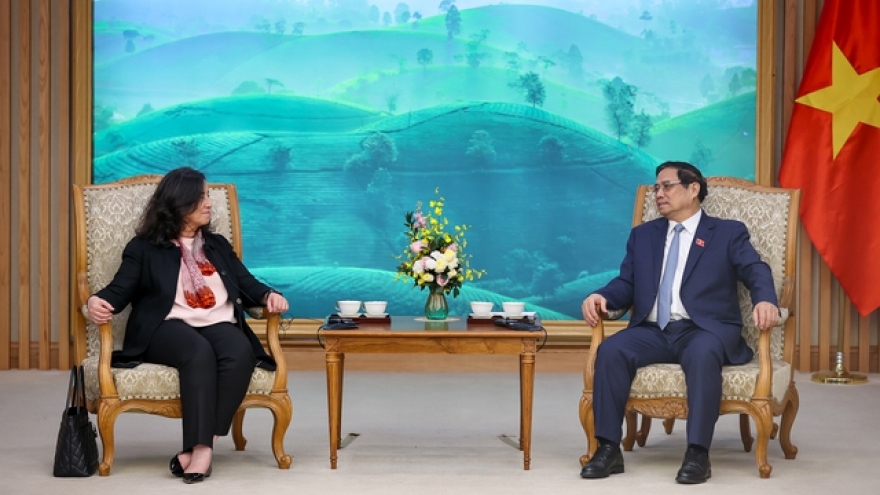WB’s contributions to Vietnam’s socio-economic development hailed
VOV.VN - Prime Minister Pham Minh Chinh has noted his appreciation for the World Bank (WB)’s contributions to Vietnam's socio-economic development since 1993, with total funding of up to US$24 billion, especially in poverty reduction.

Prime Minister Pham Minh Chinh hosted a reception in Hanoi on May 27 for visiting Vice President of the World Bank (WB) Manuela V. Ferro and WB Country Director for Vietnam, Laos, and Cambodia Mariam J. Sherman, alongside their associates.
The Vietnamese Government leader hailed the nation’s commitment to a deeper partnership, while asking the WB’s continued support for programmes and policies promoting sustainable growth, green, digital, circular, sharing and knowledge-based economies.
In reply, Ferro told her host that the WB has demonstrated trust by establishing its regional office for Vietnam, Laos, and Cambodia in Hanoi. She affirmed the lender’s readiness to work hand in hand with Vietnam to ensure that the regional office operates efficiently, benefiting all the three countries.
She underscored ongoing collaboration with Vietnamese ministries and agencies to review existing projects and develop a new phase of the Vietnam-WB Country Partnership Framework.
Showing readiness to welcome the WB President to Vietnam, the Vietnamese cabinet leader proposed US$11 billion in WB lending for Vietnam over the next five years, with a focus on large-scale infrastructure, energy and agriculture.
He encouraged the WB to consider flexible capital management models and adjust its approach to provide preferential loans for critical infrastructure projects.
These projects, should have a broad impact, connect regions, create development space and effectively deal with climate change concerns, Specifically, he mentioned the North-South high-speed railway, the Ho Chi Minh City-Can Tho railway, the Hanoi metro line, and the development of 1 million ha of quality rice in the Mekong Delta.
Vietnam has made changes in governance, investment structure, procedure reform, and a people-centric approach. The efforts ensure a harmonious balance of interests among the people, the State, and businesses.
Chinh said he hoped that the WB would continue helping Vietnam access the global carbon credit market, creating new avenues to finance Vietnam's climate commitments and goals.
The WB Vice President pledged her organization’s continued partnership with Vietnam to achieve its development goals for 2030 and 2050 through specific actions and projects. The WB would collaborate with Vietnam to discuss and devise solutions to fast-track and increase the efficiency of their joint work, as expected by the Vietnamese Government chief.


